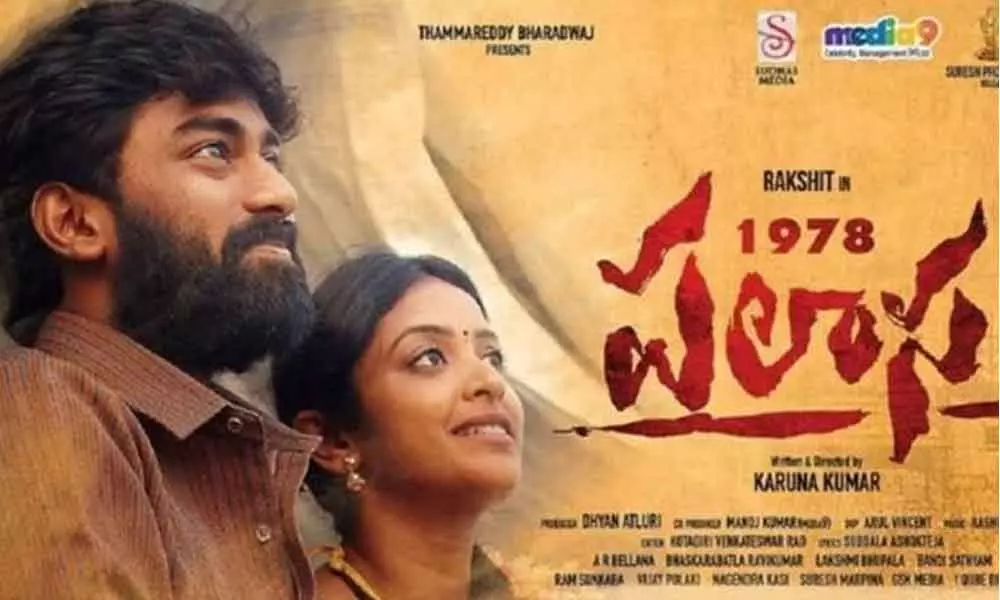A neo-noir take on caste violence

For the new gen film directors weaned on the Indian films made between the 1970s- 1990s, there is a goldmine waiting to be exploited time and again.
For the new gen film directors weaned on the Indian films made between the 1970s- 1990s, there is a goldmine waiting to be exploited time and again.
After all, the movie world moves around in concentric circles, with one genre replacing the other over and over. Palasa 1978 is a no-brainer as far as its setting and storyline is concerned as it takes the viewers back and forth from the late Seventies to the current era.
The narrative is an intermeshed layer of action, violence, a brutal take on the societal attitudes and casteism and an expression of long-harboured feelings of discrimination and suppression.
A town in Srikakulam district of Andhra Pradesh, it has always been known for its cashew nut trade. The director Karuna Kumar uses this fleetingly in a series of short clips to show how the folks in the area are dependent on it for their livelihoods.
His focus however is the fratricidal war between two usurious money lenders who run their empire in the area, how it splits a family of two brothers, of a lower caste, but whose women are coveted by the lascivious upper caste men.
Firmly anchoring the proceedings during that tumultuous phase when the state went through new political formations and saw the emergence of regional parties, Karuna Kumar, (returning to mainstream cinema after his 2009 release 'Drona') works up a decent pace to his screenplay.
The characters are life-like and the oppressed hero and his sibling (played well by Rakshith and his elder brother, Thiruveer) are pretty convincing, without undue aggression or strong body language.
Nakshatra is an apt choice for the leading lady as she looks the part of a small-town girl, who is caught between a doting brother and a lovelorn beau. Raghu Kunche, one of the two villains is menacing and understated right till the end.
The first half is watchable, by and large with the right twist as an interval block. However, the speed of the second half takes a little longer to warm up.
Once it is done, despite predictable scenes as the bad guys patch up and the other side plays catch up, the film is interesting.
The dialect is strictly local and the ambience, a close take on the ugly nexus between power mongers who, like any opportunist set of brokers seen everywhere would stoop to any level to keep themselves afloat.
In all, a bold film, without any extra glamour or distractions and a venture which should ideally be patronised by viewers who want Telugu cinema to explore new frontiers.

